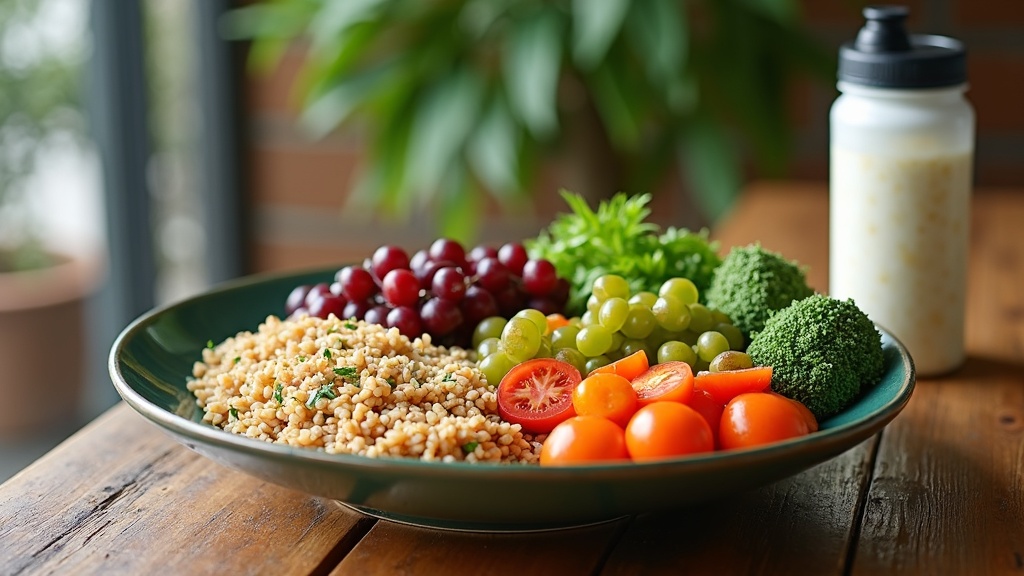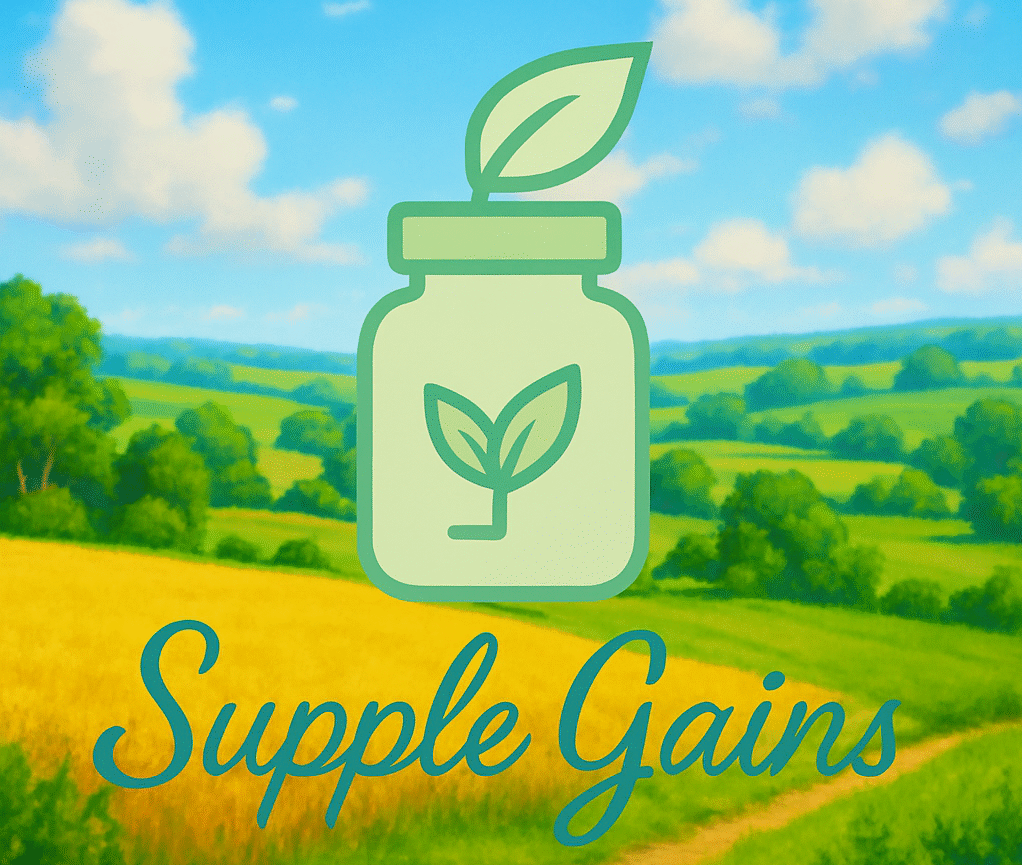Switching to a plantbased diet as an athlete stirs up a lot of questions.
Everything from protein worries to how it might affect recovery comes up.
I’ve watched this switch get a ton of attention lately, especially as highprofile athletes talk about their own switch and the results they see.
Here, I’m sharing what the experts are saying, real stories from plantbased athletes, and practical advice to help you understand what this lifestyle means for athletic performance.

The Science Behind PlantBased Nutrition for Athletes
When checking out the claims around plantbased nutrition and sports, I’ve seen experts agree that plants can provide all the major nutrients athletes need.
Plantbased diets focus on fruits, veggies, grains, nuts, seeds, and legumes.
These foods are known for packing in vitamins, minerals, fiber, and antioxidants.
According to the Academy of Nutrition and Dietetics, a wellplanned plantbased diet supports athletic performance and offers extra benefits for heart health and inflammation control (EatRight.org).
A lot of the original concern around plantbased eating and athletes, especially among coaches and trainers, centered on protein.
But experts say if you’re eating balanced meals with enough calories, it’s pretty easy to get enough protein from foods like lentils, tofu, chickpeas, and soymilk.
Dr. James Loomis, a physician who consults with pro athletes, says that plantbased proteins provide all the amino acids your body needs.
Just mix it up and keep your meals varied.
How PlantBased Eating Affects Athletic Performance
Performance depends on more than muscle.
It’s about recovery, energy, and staying healthy season after season.
I’ve noticed a few big areas where the experts keep coming back to the benefits of going plantbased:
- Faster Recovery: Plantbased diets are naturally rich in antioxidants and antiinflammatory compounds. Sports nutritionist Matt Ruscigno points out that this means better muscle recovery and less soreness after intense training.
- Endurance: A lot of endurance athletes, from runners to cyclists, share that eating more plants helps with sustained energy. Carbs from whole grains, fruits, and vegetables help refill glycogen stores for better longhaul performance.
- Lower Risk of Illness: With extra vitamins and minerals, experts like Registered Dietitian Sharon Palmer say plantbased eaters may get sick less and bounce back faster, thanks to nutrients like vitamin C, zinc, and iron.
Some research, like a 2019 review in The Journal of the International Society of Sports Nutrition, even suggests that wellplanned plantbased diets help with cardiovascular health, which is a big deal for any athlete.
Strategies for PlantBased Athletes: What the Pros Do
After talking with active vegans and reading about elite athletes, I’ve noticed some trends and tips that experts always highlight:
- Plan Ahead for Protein: Even though protein is available in plant foods, it helps to plan your meals so you’re including a variety. Think beans, tofu, seeds, nuts, and whole grains at every meal.
- Don’t Forget about Iron and B12: Iron is a big deal for endurance, and it’s not as easily absorbed from plants, so athletes tend to focus on ironrich foods (like lentils and spinach) and maybe even take supplements. Vitamin B12 is almost only found in animal foods, so supplements are popular among plantbased athletes.
- Stay Mindful about Calories: Plantbased foods are sometimes less caloriedense, so endurance athletes, especially, make sure they eat enough to cover their training needs. Snacking on nuts or avocado is pretty helpful here.
- Hydration and Electrolytes: Since plantbased diets can be high in fiber, fluid intake matters. Foods like bananas and potatoes add potassium, but athletes sometimes use electrolyte drinks or add a little salt to meals, especially in hot weather.
For anyone just getting started, working with a sports dietitian who understands plantbased eating makes things less stressful and helps you avoid missing out on key nutrients.
What PlantBased Athletes Say: RealWorld Insights
Hearing from people who are living it makes all the difference.
Worldclass ultrarunner Scott Jurek credits his plantfocused diet for powering long distances without gut issues or massive soreness.
Jurek shares that experimenting safely with new foods and listening to your body is really important.
Especially at the start, this mindful approach helps avoid unnecessary stress.
Tennis star Venus Williams went plantbased after a diagnosis, and she’s found that a wholefood, plantheavy diet helps her stay energized.
She admits it took some experimenting to get her fueling right on tough training days, but she finds that being organized with meals and snacks keeps things smooth and consistent.
Among amateur athletes I’ve talked to, a lot find that after an adjustment period, they feel lighter and more energetic overall.
Those who stick with it often say that the meal prep gets easier, and their recovery times improve.
In addition, some athletes enjoy swapping recipes and meal ideas within local communities, which can make the lifestyle more sustainable.
Potential Challenges and How to Handle Them
Any time you change your diet, a few bumps are normal.
Here’s what comes up most often, along with how people handle it:
- Hitting Protein Goals: It’s not hard, but you do need to think about it. Combining lentils with rice, or snacking on roasted chickpeas, packs in the protein. Athletes also use powders made from pea, rice, or hemp for busy days.
- Digestive Changes: When you first ramp up on fiber, you might notice more… activity. Drinking more water and adding fiber gradually instead of overnight eases this adjustment a lot.
- Meeting Micronutrient Needs: Calcium, omega3s, and zinc can slip through the cracks. Experts suggest chia seeds, fortified plantmilks, and a variety of veggies to fill in any gaps. Including some seaweed in meals is another suggestion for tracking down iodine.
- Maintaining Weight and Muscle Mass: Some athletes worry they’ll drop weight too quickly. Packing in energydense snacks (like nut butters or trail mix) helps balance calorie needs, especially when training ramps up.
Problems usually settle with some planning and, sometimes, occasional blood tests to check for hidden shortages.
Adjustments work best when you pay attention to your own energy, performance, and recovery patterns.
Checking in with a health professional once in a while can also keep things on track.
PlantBased Eating for Different Sports: Key Things to Know
Not every athlete faces the same challenges. Here are some tips that come up depending on your activity:
- Endurance Sports: Carbs matter more than ever. Rice, oats, fruit, and potatoes are easy choices for prepping or recovering from long efforts.
- Strength and Power Sports: Focus a bit more on proteinrich foods and pair meals with healthy fats. Tempeh, seitan, and tofu can help meet musclebuilding goals.
- Team Sports: Meal prep and handheld snacks are useful for long days at tournaments or practice. Wraps, homemade energy bars, and fruit keep you ready between games.
Even within each sport, individual needs can differ by the season, training load, and your own preferences.
So being flexible in how you approach plantbased eating is smart—for many, it’s about listening to their bodies and making tweaks as needed.
Frequently Asked Questions
I get a lot of questions on this, so here’s what people ask most:
Question: Will I lose strength or muscle if I go plantbased?
Answer:
Research and expert feedback say no, as long as you eat enough protein from varied sources and keep up with resistance training.
Many powerlifters and bodybuilders perform well on plants and even track gains over time.
Question: How do I know if I’m getting enough iron and B12?
Answer:
Plantbased iron isn’t absorbed as well, so eating it with vitamin Crich foods (like fruit or bell peppers) helps.
For B12, grabbing a daily supplement or eating fortified foods is a super reliable way to cover your needs.
Periodic blood tests can help spot issues early.
Question: What snacks are good for plantbased athletes?
Answer:
Trail mix, fruit with nut butter, roasted chickpeas, energy bars made with oats and seeds, and hummus with wholegrain crackers are all favorites.
They’re portable and easy to tuck into a gym bag.
Fresh smoothies made with fruit and leafy greens are also quick and easy on the stomach during training breaks.
Key Takeaways for PlantBased Athletes
Whether you’re competing at a high level or training for your first 5K, a plantbased lifestyle can work for you.
Experts say success is about variety, planning, and being in tune with your own body.
Keep your meals colorful, check in with a dietitian if needed, and don’t be afraid to experiment to find what works best for your routine.
It’s a flexible, healthpromoting way to fuel your active life.
With so many people making the switch, there’s a growing community to find support, recipes, and inspiration along the way.
If you’re curious or ready to get into plantbased living as an athlete, there’s never been a better time to try—resources and creative recipe ideas are easier to track down than ever.
Stay openminded, get involved, and enjoy the energizing ride of fueling your body with plants.
